Editor’s note: Yesterday’s cycling news headlines delivered the update that the Luxembourg anti-doping Agency (ALAD) has sent Fränk Schleck’s case to a disciplinary committee. The committee will investigate the charges, and then recommend a course of action. In a statement released Wednesday, ALAD seemed to offer little hope for Schleck: “Since the testing and the finding of the alleged violation have been made by the UCI as a competent body, the ALAD upon presentation of the test results can only make the final statement of an alleged violation of a doping rule.”
It is entirely possible that the case can play out one of two ways – either Fränk will be “Contadored” – plead and appeal his case, get stuck in the quagmire of CAS arbitration, lose and face a sanction – or he’ll get the Kolobnev treatment. Either way, it’s a less than satisfactory way for a doping control non-negative to play out in today cycling forum of public opinion and shabby system of adjudication.
What follows is Dan Kalbacher’s analysis of the problem with anti-doping enforcement.
* * * * * *
On the second rest day of the 2012 edition of the Tour de France, fans were saddened to learn of another positive doping test, or Adverse Analytical Finding, this time for Fränk Schleck with the banned diuretic, Xipamide. Once the initial impulse for snark passed, I put on my rational head to once against confront the ugly reality that has come upon cycling: Has cycling’s effort to rid the sport of doping or has it further weakened it credibility with it’s fans with how anti-doping enforcement and practices are carried out? Over the last few years, I have personally been left with a sour taste in my mouth with the cases of Contador, Kolobnev, Rasmussen, and even now Fränk Schleck. Each case followed the WADA Code in how the opinion was decided but each case left significant controversy and unknowns with nothing being decided unequivocally. Has it made the sport “clean” or has it left it with even more doubts and has the UCI put themselves in a position where they can no longer attempt to be fair and just in disciplinary proceedings?
Cycling is without a doubt the most strict sport with regard to its athletes concerning anti-doping enforcement, and anyone who argues otherwise fails to demonstrate how it is not. Repeatedly Jonathan Vaughters has gone out of his way to put people in their place when they’ve attempted to argue otherwise, and I absolutely agree with him.
With the advancements in testing and science, anti-doping proceedings are skewed against the athletes in a system where they are guilty until proven innocent. The burden rests upon the athlete and not the accuser. I work in a profession where I have the burden of proving the guilt of an accused individual and it rightly should be, because if an accused is going to be punished he should be innocent until absolutely proven otherwise. In the United States, we have such a system because it prevents the government or the accusers, from becoming too corrupt, and too powerful and increases the likelihood of the innocent being wrongly punished.
Lance Armstrong’s attorney was quite correct in saying that he is likely to lose when his doping case is heard before the USADA hearing panel. This is why I was very confident he would not likely be charged criminally by federal prosecutors and if he was, he would be found not guilty just like Roger Clemens was. In their respective cases, both defendants were in a judicial system that safeguards the rights of the accused and places the highest burden to be met in order to find them guilty.
Unlike sport, the criminal justice system has much fewer cases where there is so much doubt when an accused is found guilty. This does not discount that there are still mistakes made, but requiring a high burden must be met, I believe, reduces the level of doubt that is left in many doping cases like Alberto Contador’s, where many who put their biases aside understand nothing was proven as to whether or not he intentionally doped to improve his performance.
No matter what anyone argues, the arbitrator before the CAS held that supplement contamination was the likely source of his positive test and therefore, an “anti-doping” violation was ruled. In finding an athlete guilty of a catch-all “anti-doping violation” – whether it is an AAF or a whereabouts violation – you are even holding athletes like Gregory Bauge and Alex Rasmussen up as “drug cheats” since anti-doping codes refuse to differentiate the severity of the violations, and in turn fans simply take the path of least resistance by branding them drug cheats and dopers.
No matter what anyone who calls themselves an advocate for “clean sport” argues, Alberto Contador was not found guilty of intentionally doping or being a drug cheat. Sorry, I’ve read the opinion multiple times. People can believe what they want about media reports and everything else, but what evidence the CAS used to determine his guilt did not prove he was guilty of intentionally doping. He WAS found guilty of an anti-doping violation but again, people must remember that anti-doping authorities in cycling are still attempting to make up for years past of massive doping case,s and the pendulum has swung too far the other direction of punishing instead of fairness.
It has now gone in a direction where they would rather punish someone without having to prove a direct intent to dope even though we as human beings live in an imperfect world. Following the positive test from Fränk Schleck, his friend Chris Horner again reiterated how the sport has gone more towards the interests of punishment than actually ensuring only true, guilty athletes are punished for being drug cheats.
In a recent interview Chris Horner discussed what for me is the sole reason why I am abhorrently against strict liability in doping when he said, “Every time you take a drug test you worry.” No one can be 100% sure what goes into their body, especially in our day and age and given how much effort goes into being a professional cyclist it is stupid to expect them to be responsible for everything.
Doping tests have become so sensitive and sophisticated that trace amounts of just about anything can show up on them and we as fans, at least those ignorant few who demand cyclists “should know, no excuses” clearly don’t recognize the cycling’s current day and age.
Professional cycling teams have been under extreme distress financially with difficulties finding and keeping sponsors and even RadioShack-Nissan Trek is reportedly having trouble paying their riders. Now, if riders are supposed to be responsible for “everything that goes into their bodies,” how can these riders or teams account for the financial demands to test every single possible substance that is banned?
These labs have the financial resources, time, and trained staff members to perform these high-level tests and determine every possible minute substance that could be in a sample. Very few, with the exception of the highest-paid riders in the world, could even consider having the ability to test every single substance they put into their body before and after to include bottles from races and every other possible way of ingestion. I have yet to hear one rational and intelligent argument as to how this can or should be carried out successfully and there is a reason for that; there is no way to account for everything that is banned.
Fränk Schleck’s positive test was another sad occurrence for cycling and the Tour de France, but it’s also sad that I believe him when he claims to have no idea how the substance got into his body. Contamination is a real and serious threat to riders, and one which also has been acknowledged by both the UCI and WADA, most recently during last year’s Tour of Beijing.
Of course, neither organization would probably have accepted a contamination defense with how the rules are written and applied but again, it shows their diminishing credibility in making the fight against anti-doping credible and respected. They acknowledge the possibility of contamination but have never accepted a decision from a national federation that does not provide a two-year suspension, i.e., Kolobnev. In that case, the Russian Federation cleared him and the CAS affirmed their decision in a case.
After analyzing the CAS opinion, the Kolobnev case was an absolute embarrassment for the UCI where they failed miserably to even marginally sway the arbitrators who adjudicated the case. Of course Kolobnev was a rare situation where everything aligned for the athlete, and he met the high standard required to be given a minimal sanction even though the UCI refused to acknowledge that it was even possible, and automatically appealed the Russian Federation’s decision. In my opinion, the Kolobnev case should viewed as a standard for athletes to follow in order to overcome the guilty-until-proven-innocent burden placed upon athletes like Fränk Shleck.
No matter what decision the Luxembourg Federation hands down in the Schleck case, he’s already been found guilty in the court of public opinion. As evidenced in the Kolobnev case, he was already guilty in the eyes of the UCI as they will demand a two-year sanction and anything less will, or should be, based on their past practices and will result in an appeal to the CAS for further arbitration and review.
The UCI has backed themselves into a corner in that any decision handed down in the Schleck case of less than two years must be appealed or else the UCI’s credibility and perceived fairness will plummet even lower in their effort to fight doping, if that is even possible at this point.
The decision on Kolobnev, as ruled on by the Russian Federation, was upheld in every sense by the CAS and in my opinion probably left the arbitrators hearing this case wondering why the UCI even filed an appeal other than to hope they would again be rescued by a system that more likely than not will rule against the athlete. If the UCI had not appealed the Kolobnev decision they would have been branded “weak” or “hiding a drug cheat” rather than acknowledging the Russian Federation followed appropriate code and made the correct ruling.
Unless Fränk Schleck and his advisors can prove non-culpability through the same level of specification that Kolobnev did, he may be facing the very high likelihood of a sanction, no matter who his home federation decides for in his case. Sadly, the UCI has demonstrated repeatedly they would rather punish blindly than find and sanction the athletes with the malicious intent to cheat the sport and those who compete fairly.
* * * * *
Dan Kalbacher (@DanKalbacher) is a blogger, cycling fan, neo-racer, and law enforcement official with a degree in Criminology, Law and Society. He brings his own unique understanding of the law to his op/ed pieces.
His views are his own and do not necessarily represent his jurisdiction’s positions, strategies, or opinions.
You can read more of his writings by following him on twitter and on his blog.



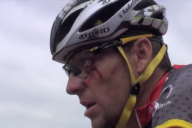




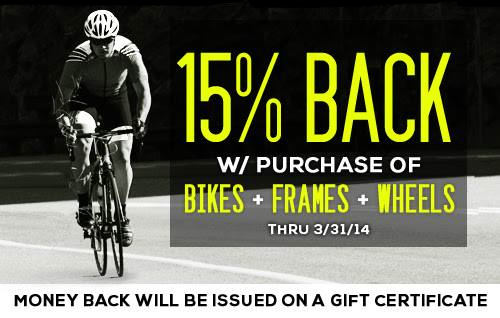

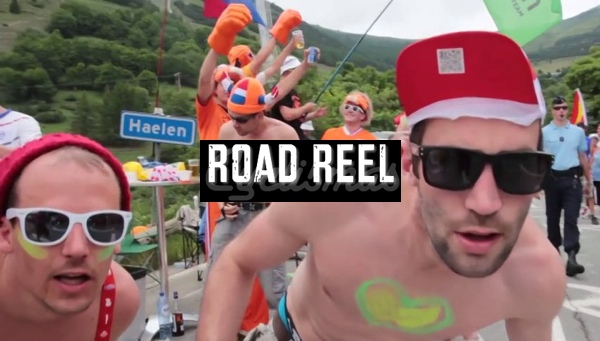
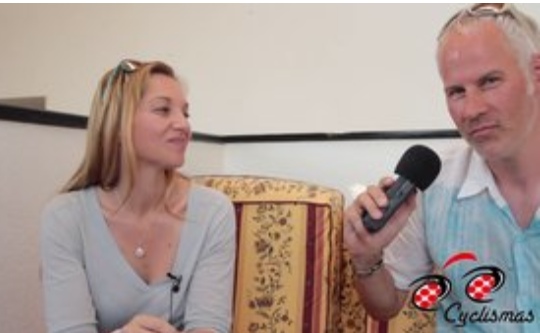

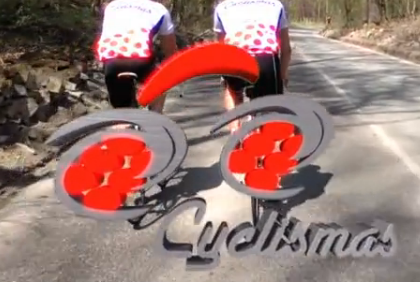

3 Comments
Hi Dan, I get your point. Innocent should be innocent unless proven otherwise beyond any reasonable doubt. And as you write, this is 100% as it should be in courts of law where the weak might otherwise easily be preyed on by the strong–although, arguably, have power in the form of money still seems to have its effects (though often in the form of powerful defendants getting away with things).That said, I don’t think this translates so well to sport/cycling. How could the “I ingested it unkowingly” argument EVER not be a valid defense for some of the compounds that are used in small traces to cover up other doping? And sure, it might have been the reason Contador came up positive, but for those of us who follow the sport a little more than casually, in this case at least there was Operacion Puerto, where bags of blood labeled “AC” (if I recall correctly) where never even tested by the Spanish authorities. I shake my head just thinking about how a simple DNA test would have sufficed there, but it got brushed away. Again, if I recall correctly, the Germans did test those labeled “hijo de rudy” and Jan Ullrich was scientifically linked to the bags.So, the point I guess I’m making is that we know in at least that case that there were a whole bunch of athletes doping (not just cyclists). We know that a guy like Eufemiano Fuentes wasn’t using those bags for pillows and that there were some high-profile athletes who were cheating (but not linked beyond a reasonable doubt). Thus, we fans know there are instances of doping being covered up, and it is almost insulting to the fan’s intelligence to suggest it isn’t going on at the highest levels if you are making decisions on a national level to squash what seems to be the most open-shut investigation possible ever. (“Hey look at all these bags of blood–if only there were some widely available forensic test used everywhere in courts of law to link them to the people they came from…”) We can be certain that those guys and perhaps their proteges are still competing and likely not changing habits just because they almost got caught (likely they are even bolder now that they know they can get transfusions in Spain). Ok, so the point I’m really making is that your position essentially asks the fans to continue to accept doping in sport and thus an uneven playing field where we can know (not “beyond a reasonable doubt/court of law” knowing, but we know) winners are decided in part on who ever, behind closed doors, is collaborating with doctors to develop the best doping schemes. Which might be fine if this were just the rule: ok, everyone dopes however they choose–then you just do it out in the open, compare results, and just have your techniques out there. The medicine becomes part of the sport. But since that is unlikely to be the case ever, those of us who invest some energy in following a guy like Ullrich (I was/am a fan) and see him get blasted, then watch the other guys ride around, evading punishment by virtue of doping in a country that turns a blind eye or by claiming that they accidentally ingested these esoteric substances–to witness this when you KNOW there’s stuff going down, it ruins the sport. Frankly, the sport died to me a little since that case in particular. I just haven’t found a new hero, they are all the opponents who managed to escape punishment by in my eyes. And that is perhaps why the authorities do need to be strict. I want the drug cheats to go down hard. Zero tolerance, so that if you risk it, you really risk it all. And yeah, it sucks for the guys who maybe ate tainted beef–perhaps that happens a lot in the peloton, I don’t know. But, in the meantime, I’m willing to accept that it’s probably doping, and perhaps some recourse or means of insurance could be found to for those who truly are not doping and come up with a false positive.I really wonder, which is better (or worse) for the sport on a whole: an occasional false positive (yep, there really was some Xipamide in his lettuce, sucks to be Frank) or a peloton of people who are accidentally ingesting things routinely, but we’re cool with that because we know our heroes won’t fall unless they’re caught with a needle in their arm? Some measurement of cost, fan dollars or maybe willingness of the best athletes to participate (which also relates to fan dollars), is probably what it comes down to at the end of the day.
Funny this – most fans seem to be just fine with antidoping efforts UNTIL their favorite rider gets caught. False positive? What is that? Banned substances are floating around in the air in the room where the urine samples are given or present in the public water supply? The tests do not find things that are not present in the samples, so what exactly is a “false positive?” Contador might have done better at CAS with a claim of contaminated supplements, especially if he could have come up with one that contained the banned substance but instead chose the “beef steak defense” that was laughable at best. I would suggest the author read this book for a better grasp of this issue http://www.amazon.com/The-Ethics-Doping-Anti-Doping-Redeeming/dp/0415484669/ref=sr_1_3?ie=UTF8&qid=1344621094&sr=8-3&keywords=doping+antidoping
Cool to see Vaughters’ NY Times Op/Ed a few days after this. I really appreciate what he has written, and fwiw, he considers anti-doping enforcement to be “1000%” better than in the time of USPS. Again, in my opinion, the idea of having to prove beyond a reasonable doubt that someone doped (I just keep wondering how you would prove that something wasn’t accidentally ingested if that were an athlete’s claim) and being laissez faire about it all gets no one anywhere and is, essentially, a position that accepts cycling must include doping.http://www.nytimes.com/2012/08/12/opinion/sunday/how-to-get-doping-out-of-sports.html